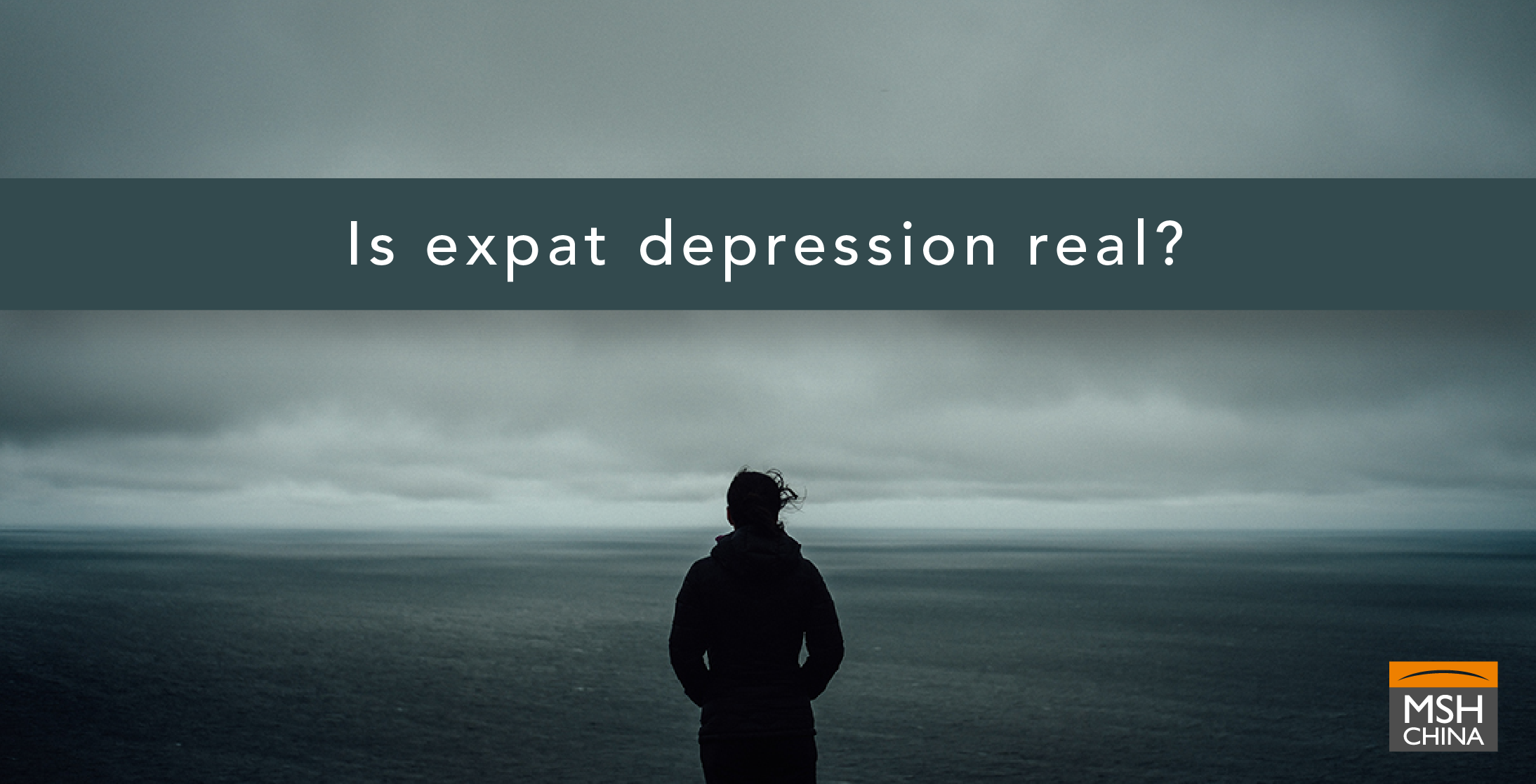Back to list
2020-01-20 14:43:32

You’re
moving or just moved to China to work. It’s a new and exciting chapter in your
life. New cultures, new language, new friends and environment. What could
possibly go wrong?
In a survey on mental
health issues faced by expatriates worldwide, depression turned out to be most
prevalent condition (with a 50% depressive symptoms increase between 2014 and
2016), followed by anxiety (28% prevalence increase).
Once the initial euphoria
of arriving in a new country has worn off, emotional and mental difficulties
can blight your experience of working overseas.
MSH China has decided to interview
Julia Banet, clinical psychologist at Raffles Medical Clinic in Shanghai. Prior
to joining Raffles, Julia worked in France for 5 years in hospital’s maternity
section. She’s happy to answer our questions about depression to raise
awareness among people.
Q1. WHAT CAUSES EXPATS TO BECOME DEPRESSED?
A: Actually there is no distinction between expats and other
people when it comes to depression. Both might experience it with similar
likelihood. I was actually surprised when I first came to Shanghai, I was
expecting to find some specific problems caused by expatriation. Of course there
are some, but those are definitely not substantial. Problems of any human being
are about the same, be it expats or not. Most of my patients in Shanghai are
suffering from personal situations from either their past (e.g. childhood
trauma) or present (e.g. a divorce, loss of someone, relationship issue,
anxiety or depression). It’s mostly the same as compared to what I see in France.
Some factors can explain
why people can become depressed:
Lack of sleep: sleep may seems obvious for everybody but when you’re
suffering from insomnia for example, you will feel restless and won’t be able
to control your emotions as well as you can normally. The more tired you are, the
less emotionally stable you are which can become a vicious circle.
Out of Comfort Zone/Being away of your usual surroundings: this can be family,
friends, food that you are used to eat, your usual routine and environment.
Human being really needs benchmarks in order to feel safe. Living in a new
country that is very different from your usual setting can make you lose the
sense of comfort and safeness.
Lack of emotional support: human being needs emotional support in
his/her daily life. This is something that you have around yourself and may not
even notice it. It can come from your friends, family, co-workers or neighbors.
Sometimes it can be pretty subtle and you only notice it when you lose it.
The lack of emotional
support and being away from your usual settings won’t lead to what we called, a
clinical depression. Instead, mostly what we can observe in this situation is a
depressive phase where you will feel a little bit down for a few weeks or
months. Real clinical depression comes along with some other risks factors such
as a trauma, the loss of someone or a major emotional episode that will create some
sensibility and fragility.
Many people think that by
moving to different countries and environment they will feel better. It may, at
first, but if you have existing issues that were never treated before, these will
come with you no matter where you are. On the contrary, the expatriation might
create a lot of stress and anxiety that can increase the risk of depression.
Q2. ARE THERE SPECIFIC CAUSES TO CHINA THAT LEAD TO ANXIETY OR DEPRESSION?
A: As you know in China, the local language is very difficult.
The fact that you cannot communicate so easily in your daily life can be a
factor for causing stress and anxiety. This alone, of course will not cause
depression. However, if coupled with other factors, it may.
For example, sometimes when
you just want to relax and go for a walk or to a nice restaurant but then you
can’t really read the signs or understand the cashier. While in your country
these common situations can be handled easily, here in China it will be quite
difficult for some people.